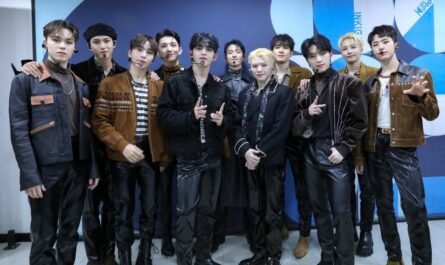“Older songs take you back to a time when you could enjoy the music itself without caring about the industry behind it. Due to this takeover fight, it became impossible to listen to K-pop comfortably, and the artists were playing chess.” Choi Mo (26), a DJ
Who works at a club in Seoul explained the reason while playing the latest K-pop hits, such as 2NE1 and Wonder Girls, which were popular ten years ago, according to the New York Times (NYT) ) was reported. It’s a very empathetic reason.
The newspaper pointed out that amid the competition between Kakao Enter and Hive over the acquisition of SM Entertainment, only the market logic targeting the global fandom was highlighted, and the loyal Korean fans laid the foundation for K-pop’s success seemed to have been pushed into the background.
The NYT pointed out, “In the fight over the acquisition of an agency that could inevitably affect the global K-pop market, music consumers in the domestic market began to question what it meant to them.”
The newspaper interviewed those who actively consume K-pop to hear how they perceive the recent K-pop industry trends and the competition to acquire SM. A 36-year-old Mr. Kim, who enjoys listening to popular music, also pointed out, “I get the impression that Korean fans are being pushed back as the music industry targets the West.” A long-time SM fan, Mr. Lee (36) worried that “the degree of freedom would be reduced” if the company’s idol groups moved to Kakao.
In particular, the NYT reported that many fans fear that K-pop songs will increasingly be written only in English. The reality is that recent K-pop hits are being produced for the US market. The NYT pointed out that BTS Jimin’s ‘Like Crazy’ topped the US Billboard’s main singles chart, ‘Hot 100’, on this day, but it was ranked low on the Korean chart.
When Hive jumped into the acquisition competition, it announced its plan to create synergy with SM’s overseas expansion know-how, saying, “We will further expand the fan platform that leads the global market.” Kakao, which attracted a massive investment of 1.2 trillion won from the Singapore Investment Authority (GIC) and Saudi Arabia’s Sovereign Wealth Fund (PIF), also said, “Acquisition of SM was essential to bring the fandom platform that is spreading globally.”
The NYT pointed out that Korean fans are concerned that if this trend continues, eventually, agencies will follow the logic of capital to the extreme, maximizing profits through entry into the global market rather than domestic record sales and concerts.
According to K-Pop Radar, about 90% of K-Pop listeners are overseas residents. In the 1990s, when ‘three entertainment companies such as SM, YG, and JYP, jumped into the market, it changed to a world market centered to an extent incomparable to that. As a result, the NYT’s analysis is that agencies will increasingly lose focus on the factors that made K-pop successful.
A 19-year-old student named Kim complained, “My hobby, which should have been fun, has turned into a concern.” Kwon Mo (17), a high school student running a YouTube fan channel, said, “I don’t know how album covers, singers’ fashion, concert atmosphere, and ‘goods’ design will change in the future.”
Points to this problem also came up at a discussion held by Cultural Solidarity on the 3rd of last month. Here are the remarks of the two panels.
Kim Soo-ah, Seoul National University, Department of Mass Communication, Interdisciplinary Program in Women’s Studies, Professor “Until now, agencies have been implicitly ordering the fandom, ‘If you love a star, show your support by spending money,’ and in this structure, there is a sense of defeat and powerlessness in the fandom. It’s a war over money, so it’s the fans’ position that if we talk about it, what effect will it have? For the fans, it doesn’t matter which side takes over, but the continuity of my beloved singer is what counts. But (there’s nothing I can do), and I have no choice but to wait to see the outcome. I am afraid of the front of various possibilities, hoping that this dispute will pass quickly and ‘my love’ will last. Whichever way his singer goes, his support will not change.
All fandoms have in common is ‘the experience that my love ended even though I didn’t want it.’ I want to maintain my love somehow, even in instability, so the part that fans put the most effort into is the stability of my love.”
Lee Jong-im, Seoul National University of Science and Technology/Cultural Solidarity Technology, and Culture Media Committee member “Fans are confused about how far they should go. Should I buy stocks and even campaign for minority shareholders? The capitalization structure is accelerating, and fans seem to be able to go according to it. It is accelerating from listening to music rather than consuming it. I wonder if the agency is taking too much advantage of the fandom’s willingness to do anything to keep the artist I like.”











